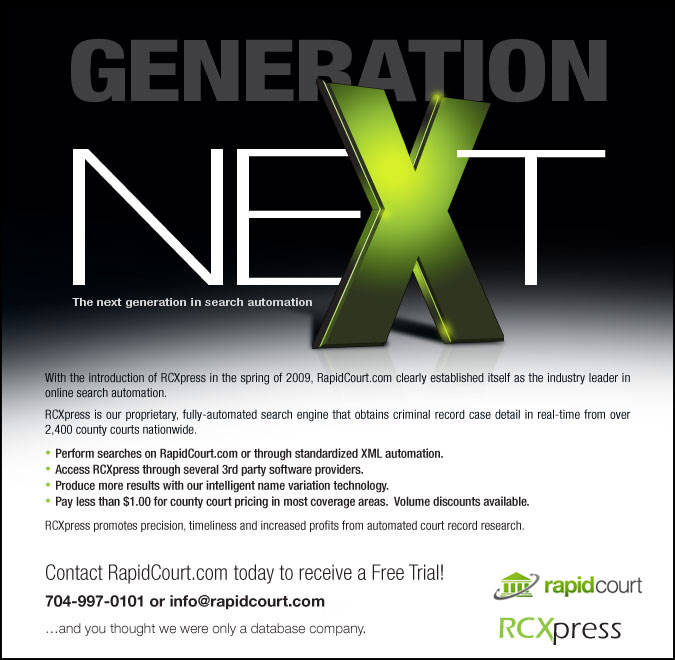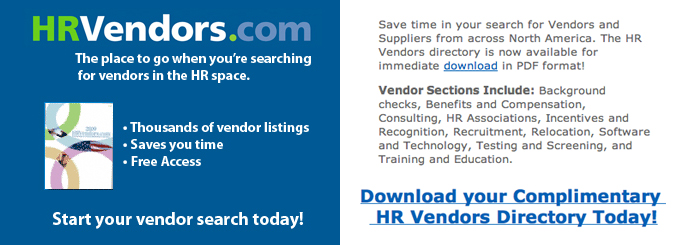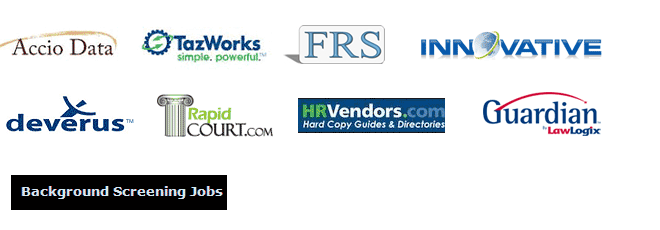| |
| BACKGROUND
SCREENING NEWS |
Pepsi
Settles EEOC Charges of Racial Bias in Screenings for $3M
Pepsi Beverages,
formerly known as Pepsi Bottling Group, has agreed to pay $3.1
million, develop a new background check policy and provide job
offers and training to resolve a race discrimination charge
filed against them for violating Title VII of the Civil Rights
Act of 1964. An investigation by the Equal Employment Opportunity
Commission (EEOC) revealed that more than 300 blacks were adversely
affected when Pepsi applied a criminal background check that
disproportionately excluded black applicants from permanent
employment. Under Pepsi's former policy, job applicants who
had been arrested pending prosecution were not hired for a permanent
job even if they had never been convicted of any offense. The
EEOC also said Pepsi's former policy had denied employment to
job applicants who had been arrested or convicted of certain
minor offenses. The EEOC advises employers to take more factors
into consideration before completely excluding applicants, such
as the nature and gravity of the offense and the time that has
passed since conviction, etc.
To read
more, click here

Staffing Firm Settles Lawsuit Filed by Amazon Applicant
Integrity Staffing Solutions (ISS) has settled a discrimination
lawsuit brought by an African-American man convicted of manslaughter
almost 30 years ago, after ISS denied him a job at Amazon.com
because of his criminal record. ISS was accused of violating
the federal Civil Rights Act. Jennifer Clarke, Executive Director
of the Public Interest Law Center of Philadelphia says, "Employment
policies that impose a blanket exclusion on people with past
convictions, without any consideration of the relationship of
the conviction to the job in question, can constitute unlawful
discrimination." The Public Interest Law Center says ISS "has
reaffirmed its policy of providing equal employment opportunity
for people with past criminal convictions" and "also has further
re-emphasized to supervisors and personnel engaged in the hiring
process the importance of and appropriate review of a job applicant's
criminal convictions."
To read more, click
here

Best Practices for Conducting Criminal Background Checks
The National
Employment Law Project (NELP) has created the guide, Criminal
Background Checks: A Best Practices Guide for
Employers to help HR departments save time and money and
create a larger pool of qualified candidates. NELP advises employers
to: carefully survey positions to determine which require a
background check to avoid unnecessary costs; do not inquire
into criminal history on the initial application; include notice
on your job application that a conviction is not an automatic
bar to employment; do not ask about or consider arrest records;
comply with the Fair Credit Reporting Act requirements by providing
notice and obtaining worker consent, giving the applicant a
copy of the background report prior to any rejection and allowing
the applicant to correct information; only consider convictions
that are both job-related and recent; consider the circumstances
of the offense and any evidence of rehabilitation; give the
applicant a written notice of the potentially disqualifying
conviction(s) and allow the applicant to provide information
regarding the offense(s), including evidence of rehabilitation.
To read more, click
here

Feds Consider Taking Ex-Offenders Out of the Box
With nearly
1 in 4 adults in the U.S. having a criminal record, there is
a call by civil rights organizations, politicians and some employers
to change Equal Employment Opportunity Commission (EEOC) guidelines
to "ban the box"- the portion on a job application asking candidates
to reveal details of their criminal history during the application
process. While ban-the-box laws have not yet been decided on
a federal level, some states are independently changing their
guidelines. According to the New Haven Prison Reentry Initiative,
Connecticut in June 2010 became the fourth state after Minnesota,
New Mexico and Hawaii to enact ban-the-box laws for state jobs.
The laws allow employers to ask about criminal history once
they're face to face with applicants and do not prohibit background
checks. However, ban-the-box supporters say eliminating the
question on applications gives job candidates an opportunity
to get an interview and explain their past. Advocates hope to
create a level playing field, which in turn can broaden an employer's
pool of qualified job candidates.
To read
more, click
here (registration may be required to read
full article)

When Background Checks Aren't Enough
Despite paying a top-notch company to conduct a thorough
background check, a Florida based security company is shocked
to learn that their recently hired door-to-door sales rep stands
charged with raping and attempting to murder a potential customer
in her home, while on duty. SecureWatch, an ADT authorized dealer,
based their hiring decision for the offending sales rep on his
background check, which revealed no criminal record.
"There was nothing. The guy was as clean as a whistle," Paul
Victor, company COO said. "Then it turned out because of the
level of access we had in our commercial background search,
we didn't see until I read in the paper that he had some juvenile
offenses." Because background-check companies don't always have
access to all criminal databases, the Electronic Security Association
is urging the passage of federal legislation that would allow
electronic security companies to search the FBI's database to
determine whether job applicants have a criminal record.
To read more,click
here



Tenant Screening Should Include Eviction Reports
In today's
economic climate, small-time mom-and-pop landlords should not
only run credit checks on would-be tenants, but also make sure
prospective tenants haven't been forcibly removed from their
previous residences. Eviction reports are one of the most important
tools landlords can use to screen prospects. According to the
National Sheriffs' Association, forceful evictions by law enforcement
officers have been on the upswing for the last few years, giving
rise to a new group of nomadic tenants. Evictions resulting
in money judgments can be found in the public records section
of an individual's credit report. However, according to MicroBilt,
a risk management information company, three out of four eviction
filings don't result in money judgments, and those that don't
are not listed on the credit report.
In addition, Matthew Roesly of MicroBilt says, it often takes
60 to 90 days for a money judgment to show up on a credit report,
leaving plenty of time for recently evicted individuals to find
a new place before the eviction shows up. Roesly recommends
every landlord pay for an eviction report, especially if your
property is located in a tenant-friendly jurisdiction. "The
cost of just one bad apple could be in the thousands, not just
in lost rent but also in damages and legal fees," he said.
To read
more, click here

EmployeeScreenIQ Names Angela Bosworth, Vice President of Compliance
and General Counsel
EmployeeScreenIQ, a global provider of employment background
screening services, has announced the appointment of Angela
Bosworth to vice president of compliance and general counsel.
In her new role, Bosworth will lead corporate compliance initiatives
and help shape strategy that positions the fast-paced organization
for future growth. Bosworth joins EmployeeScreenIQ with broad
industry experience including more than 20 years as a licensed
attorney and over 10 years in the background screening industry,
most recently as executive vice president of the national screening
company OPENonline. She has extensive expertise in employment
law, government affairs, compliance best practices and policy
initiatives. She serves on the Board of Directors of the National
Association of Professional Background Screeners (NAPBS), is
a member of the NAPBS Background Screening Credentialing Council
(BSCC), and is actively involved in the Society for Human Resource
Management (SHRM) and ASIS International, the preeminent organization
for security professionals. Bosworth, a frequent speaker and
educator to the industry, is also a member of the Ohio State
and Columbus Bar Associations.
Click
here for more information

Promesa
Enterprises d.b.a. Integrated Screening Partners
Achieves Background Screening Credentialing Council Accreditation
The National Association of Professional Background Screeners
(NAPBS®) Background Screening Credentialing Council (BSCC)
announced today that Integrated Screening Partners has successfully
proved compliance with the Background Screening Agency Accreditation
Program (BSAAP) and will now be formally recognized as BSCC
Accredited. This recognition will stand as the industry "seal"
representing a background screening organization's commitment
to excellence, accountability, high professional standards and
continued institutional
improvement.
To read more, click
here

Online
Privacy Debate Heats Up with FTC and Commerce Dept. Reports
Coming Soon
The Commerce Department and FTC will soon be releasing reports
outlining the Obama administration's position on online privacy
issues, making this the first acting administration in U.S.
history to introduce or endorse a federal privacy law. With
the rise of social networks, online shopping, and targeted advertising,
the topic of online privacy has ignited a heated debate between
companies and consumers. Companies blame consumers for not utilizing
privacy tools in place, while consumers expect companies to
be clear about information collected and how to opt-out when
necessary.
Jules Polonetsky, the Director of the Future of Privacy Forum,
believes privacy legislation is on its way and, "If we are able
to craft privacy law that supports innovation [and] gives users
more protection, we'll win." The Commerce Department framework
would likely encourage companies to develop rules for their
industries, potentially enforced by the FTC's Safe Harbor rules.
Polonetsky also notes that companies who want to avoid federal
legislation need to be proactively proving they are self-regulating.
To read
more, click here

| Welcome
to the U.S. Legal Challenge Question! |
Sponsored By:


As the background
screening industry continues to get more competitive the firms
that will ultimately succeed will be those that create competitive
advantage through their people by offering continuous learning
opportunities to heightened their knowledge and capabilities.
We believe that having employees that are very knowledgeable about
the legal landscape of background screening is essential to continued
success.
We are grateful
to John Fay, Vice President of Products and Services and General
Counsel at LawLogix, Inc
for providing the expertise for this valuable endeavor. In his
current role, John serves as, a leading provider of Electronic
I-9 Compliance, E-Verify and Immigration Case Management Software
and is responsible for overseeing product design and functionality
while ensuring compliance with rapidly changing immigration and
employment eligibility rules.
For information
regarding the answers to the Legal Challenge Questions, please
contact John Fay at (602) 357-4240 and for more information about
LawLogix e-verify and immigration
support services please visit www.Lawlogix.com
Please choose
your answer by clicking on it:



Publicly
Reporting Expunged Conviction Records Does Not Create Liability
For Defamation
Publicly
reporting expunged conviction records does not create liability
for defamation if the information disclosed is true, according to the New Jersey Supreme
Court . In the case, a political campaign publicized the
expunged drug conviction of an opponent's aide in a flyer.
The Court
ruled that defendants in this case were entitled to assert truth
as a defense to the defamation and other related tort actions,
even though the plaintiff.'s conviction was subject to an expungement
order. Second, the plaintiff failed to establish that the flyers
were not substantially accurate. Lastly, the plaintiff had no
reasonable expectation of privacy that information so long in
the public domain before the entry of the expungement order would
be erased from the public's mind or from papers already widely
disseminated.
To read more
click here

We're Wary But Hopeful As 2012 Gets Underway
It appears
things are looking up for 2012. Consumer confidence is at its
highest level in months, the U.S. economy has been adding jobs
now for more than a year, the stock market is up decisively reflecting
strong growth in manufacturing and increased construction spending,
and employers are looking to add more staff this year. A survey
by CareerBuilder found that one in four employers plans to add
permanent staff this year. Manpower's quarterly employment survey
found that 14 percent of employers intend to add jobs in the first
three months of the year. Consumer attitudes are increasingly
more hopeful as reflected in the 25-point climb in the Consumer
Confidence Index. In addition, Challenger, Gray & Christmas
revealed that 30 percent of the callers to its annual free, phone-in
job help line were optimistic they would land a job within three
months compared to only 18 percent the previous year.
CareerBuilder's
CEO Matt Ferguson predicts a somewhat brighter employment picture
for 2012 than the numbers, or the job seeker survey, might imply.
"Historically, our surveys have shown that employers are more
conservative in their predictions than actual hiring," he says.
"Barring any major economic upsets, we expect 2012 to bring a
better hiring picture than 2011, especially in the second half
of the year."
To read more,
click
here

Steady Employment Growth Expected in 2012: Survey
For the third year in a row, an increased number of
employers plan to add full-time, permanent employees with a continued
emphasis on hiring in technology and revenue-producing fields,
according to a survey by CareerBuilder. Information Technology
(IT) is the top functional area employers are recruiting for in
2012, with 37 percent of the 292 HR professionals surveyed planning
to add IT positions. Following behind IT, are the areas of administrative,
engineering, accounting and finance, HR, production, customer
service, business development, sales, and marketing. The survey
also revealed 34 percent of employers plan to hire full-time,
permanent employees in 2012, compared with 29 percent for 2010,
while 18 percent of employers expect to hire part-time employees.
More employers will also be relying on contract or temporary workers
to supplement leaner staffs this year (66 percent).
"Even as
the global economy continues to struggle, Canada is expected to
add jobs at a steady pace in 2012," said Brent Rasmussen, president
of CareerBuilder North America. "Our survey data and increases
in job postings on CareerBuilder.ca indicate that companies will
hire in functional areas that support the efficiency of their
business."
To read more,
click here

STOP
STRUGGLING WITH WRITING AND PUBLISHING YOUR NEWSLETTER: |

We can help
you have a high quality e-newsletter to help nurture your relationship
with your clients and attract new clients. Our customized newsletter
service will take over your newsletter task or create a new one
for you. We can manage the creation of your newsletter for you.
We are constantly
researching information to use for The Background Buzz and
you can put our research to use for you. Using the information
rich content from The Background Buzz (minus the ads
and competitors information) we will create a custom newsletter
for you.
Use your staff’s
time to do more valuable work and save all the hassle of researching
or writing articles, formatting and managing all the other ezine
tasks with our customized ezine process.
Contact Barry
Nixon at 949-770-5264 or at wbnixon@aol.com
for more information.

Public
Record Update
Sponsored by:

Public
Record Update
By Mike Sankey, May,
2011
|
The
FBI Will Lower Fee for Fingerprint Searches |
|
Authorized users requesting fingerprint-based
Criminal History Record Information (CHRI) checks for
certain noncriminal justice purposes will see a lower
fee starting March 19, 2012. The charge for a CHRI check
when submitting fingerprints will decrease by $2.75, and
if for a volunteer there is a $.25 decrease.
For example the current fee in effect for electronic submission
by authorized users will decrease from $19.25 to $16.50.
The fee for Centralized Billing Service Providers (CBSPs)
will decrease from $17.25 to $14.50. The fee for "volunteers"
will decrease from $15.25 to $15.00, and if CBSP then
$13.25 to $13.00.
This new fee should lower the cost when the FBI performs
the fingerprint search for background checks performed
by state occupational licensing boards
and also for the issuance of HAZMSAT endorsements
for commercial driver licenses.
More information about this decrease is viewable on the
Federal Register at www.gpo.gov/fdsys/pkg/FR-2011-12-20/html/2011-32544.htm
.
|
| Makeup
of Death Master File Changed |
|
Effective November 1, 2011, the Social Security
Administration (SSA) is no longer including state death
records in the SSA's Master Death File (DMF). The law
governing this action is found at www.ssa.gov/OP_Home/ssact/title02/0205.htm
. Section 205(r) prohibits the SSA from disclosing
state death records it receives, except in limited circumstances.
Since
it can no longer add these entries, the SSA further decided
to remove 4.2 million existing state records from the
DMF. This removal represents a little over 4.7% of the
entire database. One of the significant pieces of information
that the state records data added to the DMF was the last
known residence (state, county) of a subject.
Please
note that the SSA does not have a death record for all
persons. The DMF as a verification tool is good, but the
absence of a particular person does not guarantee the
person is alive.

For
more information contact Michael Sankey at mike@brbpublications.com
or visit
www.brbpublications.com/updates.aspx
|

Accept
No Substitutes
A new 'marker'
system has been developed to curb drug test manipulation by detecting
substituted samples that don't belong to the individual who submitted
them. Until now, sample substitution has only been detectable
through diligent, gender-specific, full-frontal supervision by
staff members; a process that results in a 15-20 percent human
error rate. The new Marker Test is a non-disruptive process which
requires clients to ingest a liquid "marker" that can be seen
when the sample is sent to the lab for analysis. If the marker
isn't there, it's proof that the sample was substituted. Although
this doesn't necessarily conclude that the subject is using drugs,
it does indicate an attempt to manipulate the sample. To date,
the Marker Test has been used in over 400,000 drug tests in Europe
and the Middle East, and will soon be available in the United
States.
With more than 1,000 distinct markers possible, it's statistically
improbable to predict which marker an individual will receive.
In addition, the marker is also kept secret from the administrator,
eliminating a biased test on either side. The Marker Test improves
the integrity of samples, frees staff of babysitting test takers
and identifies those clients attempting to manipulate their drug
test thus revealing their state of mind, which can be used to
help improve their treatment.
To read more, click
here

200 Million People Worldwide Use Illegal Drugs, Study Says
An estimated 200 million people worldwide use illegal drugs every
year, according to a new study in Australia's medical journal,
The Lancet. The health consequences of this use include
overdose, dependence, violence or injury due to intoxication,
as well as heart disease, mental disorders and cirrhosis. The
report found that marijuana is the most used drug, followed by
amphetamines, cocaine, and opioids. It also found that illegal
drug use is highest in developed countries and those who use illegal
drugs usually use more than just one type. According to the World
Health Organization, drugs caused 2.1 million years of life lost
in 2004, followed by alcohol, which caused a loss of 1.5 million
years. Drug-related deaths tend to strike younger people, accounting
for the higher number of years of life lost compared with other
causes of death.
To read more,
click here

Prescription Drug Abuse Results in One Death Every 19 Minutes
in U.S.
One person dies every 19 minutes from prescription drug
abuse in the U.S., according to the Centers for Disease Control
and Prevention (CDC). An estimated 27,000 unintentional drug overdose
deaths occurred in 2007. The rise in unintentional drug overdose
deaths has been driven by an increase use of opioids. The rate
of opioid misuse and overdose deaths are highest among non-Hispanic
whites, men ages 20-64, and poor and rural populations. The CDC
says the two main groups at risk for prescription drug overdose
are the nine million people who report long-term medical use of
opioids, and the roughly 5 million who have used opioids without
a prescription or medical need in the past month.
To read more, click here

Industry Launches International Drug and Alcohol Free Workplace
Standards
The Drug
& Alcohol Testing Industry Association (DATIA) has announced
the launch of an international standards program for drug and
alcohol free workplace programs with the goal of supporting effective
drug and alcohol free workplace programs on a global level. Based
on a recent study conducted by DATIA and the Society for Human
Resource Management (SHRM), the benefits of such programs were
established and through the iDATIA Accreditation program, they
hope to enable international organizations to take advantage of
the many benefits of a drug and alcohol free workplace. Currently
there are no international standards or accreditation programs
for drug testing policies or programs.
"This has
been a serious problem for organizations operating outside the
United States who want
to ensure
their workplace is drug free by testing applicants and employees,"
said Patricio Labatut
and Brian
Drew, Co-Chairmen of DATIA's International Committee. "Without
an international
standard
some companies have been testing incorrectly and missing substance
abusers, costing
their companies
in the end."
To read more,
click here



One
Site! Many Suppliers! |
Looking
for the Top Suppliers in the Industry? Need to find a new Supplier?
Visit our VENDOR
SHOWCASE which features suppliers to the Background
Screening Industry.
Winter
2012 Directory of Suppliers to the Background Screening Guide
Coming Soon!
Click
here to find out how to get your firm included.


Teaching
Hospital Agrees to Pay $115,000 for Discrimination During the
I-9 Process
The University
of California San Diego Medical Center has agreed to pay a civil
penalty of $115,000 after failing to comply with proper I-9 procedures
for non-citizens who are authorized to work in the United States.
The Department of Justice (DOJ) filed suit against UCSD Medical
for an alleged pattern or practice of requesting excessive I-9
documentation. Under the terms of the settlement, UCSD Medical
has also agreed to conduct supplemental training for its human
resources personnel and work with the DOJ to ensure compliance
with proper Form I-9 processes across all University of California
campuses, medical centers and facilities. As ICE continues to
step up its enforcement activities, many employers are scrambling
to follow the confusing rules and procedures, oftentimes resulting
in accidental or intentional discrimination during the hiring
process as well as "document abuse." Employers can ensure that
I-9s are completed properly without engaging in unlawful discrimination
by: engaging experienced immigration counsel to evaluate your
current processes and procedures; developing policies documentation
and training; and using a smart Electronic I-9 and E-Verify program.
To read more, click here

The
Current STATE of E-Verify
E-Verify
is quickly becoming the not-so-voluntary system of choice for
verifying new hires' eligibility to work in the United States.
Regardless of whether or not you believe the system is "fast,
free, and easy" or "too flawed to be mandatory," the reality is
that many employers are required to use E-Verify through an ever-expanding
web of state requirements. There are currently 9 states which
require E-Verify for all or most employers; 8 states which require
E-Verify for public employers, contractors, and/or both; and 5
states which require employers to use E-Verify in certain local
or municipalities. The following states have new E-verify laws
now in effect as of January 1, 2012: Alabama (Act No. 2011-535),
Georgia (HB 87), Louisiana (Act 376 and Act 402), South Carolina
(Act 69), and Tennessee (HB 1378).
Employers need to make a coordinated effort to successfully manage
their I-9 and E-Verify obligations by working closely with experienced
immigration counsel to ensure compliance with both state and federal
rules. In addition, employers are advised to use an integrated
I-9/E-Verify system which can automatically control the submission
of I-9s to E-Verify by work location or impose other state-specific
rules.
To read more,
click here



USCIS
and Mississippi Implement New E-Verify Tool to Combat Fraud
U.S. Citizenship
and Immigration Services (USCIS) today launched Records and
Information from DMVs for
E-Verify (RIDE) , a new feature which allows USCIS's E-Verify
program to validate the authenticity of Mississippi driver's licenses
used by employees as Form I-9 identity documents. "RIDE reflects
our commitment to continually improving E-Verify," said USCIS
Director Alejandro Mayorkas. "This important enhancement strengthens
E-Verify's anti-fraud capabilities and will play a key role in
helping employers in the U.S. maintain a legal workforce."
More than
80 percent of employees present driver's licenses to establish
their identities when completing the Form I-9. By enabling E-Verify
to compare driver's license data against state records, RIDE will
improve E-Verify's accuracy and help combat document fraud when
determining employees' eligibility to work in the United States-while
observing safeguards to protect employee's personal data. RIDE
helps combat document fraud by enabling E-Verify to confirm the
authenticity of an additional identity document. For example,
previously, if an employee presented a driver's license to establish
his or her identity and a social security card to establish his
or her employment authorization, E-Verify would only have been
able to confirm the validity of the social security card. RIDE
enables E-Verify employers in Mississippi to confirm the validity
of both documents.
To read more
click
here

Dobro
pozhalovat (welcome) to the
International Legal Challenge Question!

Most industries
and firms now compete in a global marketplace which is continuing
to increase the need for background checks for new hires that
will reside in another country or that are being hired from another
country. Commensurate with this growth in background checks is
the need to understand the myriad of data protection, privacy,
human rights and local laws that govern the practice of conducting
background checks. To help background screening firms around the
world to further enhance their knowledge we have launched this
International Legal Challenge.
We are grateful
to Brian Arbetter a Partner with the global law firm of Baker
& McKenzie LLP for providing the question and answer to the
questions in the International Legal Challenge. Brian is based
out of the Firm's Chicago and San Diego offices. His practice
focuses on international law issues, with particular emphasis
on labor and employment, as well as workplace privacy. For information
regarding the answers to the International Legal Challenge questions,
please contact Brian at brian.arbetter@bakermckenzie.com.
Please
Choose One of the Following Answer in Response to the Question
For
information on sponsoring The International Legal Challenge Question
please Click
Here

International
Personal Privacy Compliance for Global Staffing Directors
The responsibilities
and obligations of employers under European Data Protection Directives
and the UK Data Protection Act can trigger a lot of issues when
working in a global marketplace. When handling and transferring
employee data from the EU to third countries such as the U.S.,
companies are required to identify and implement a legal basis
for such transfers. Employers operating in the EU that collect
or process personal information without adhering to member state
laws or that transfer personal information from the EU to a country
without adequate protection or a relevant exception, may incur
substantial legal liability.
Effective management of overseas data privacy, HR policies related
to international applicants, and security involves a multi-disciplinary
approach involving policy development, legislation, technology
and business processes in order to fully understand data protection
and privacy issues. In addition, HR data management is a process
that must include a comprehensive Human Resource Data Privacy
Management Plan for responding to the constant changes of both
internal and external factors.
To read more,
click here
Immigration:
Check Your Employees or Pay the Price
The Department
of Immigration and Citizenship (DIAC) has sent out a stark warning
of the significant risks faced by employers that fail to check
the immigration status of their prospective employees. Individuals
responsible for employing illegal workers face fines of up to
$13,200 and two years imprisonment if convicted under Commonwealth
legislation. Additionally, companies can also be fined for overall
organizational negligence, and face fines of up to $66,000 per
illegal worker. "It is the responsibility of employers to ensure
that non-Australian workers they hire hold a visa with valid work
rights," a DIAC spokesman said. "Illegal workers in Australia
will not be tolerated and the department actively investigates
community reports and takes swift action to apprehend non-citizens
without work rights."
To read more,
click here
RCMP
Adding Fingerprint Scanners to Speed up Background Checks
The Royal
Canadian Mounted Police (RCMP) is taking steps to speed up the
checking of fingerprints submitted by Canadians seeking employment
or volunteer positions as coaches, child-care workers and caregivers
for the elderly. Under new rules that came into effect in 2010,
anyone who wants to work or volunteer with vulnerable groups must
submit fingerprints to Ottawa for analysis to ensure they aren't
the same person. As a result of the new law and consequently a
large increase of "vulnerable" background checks needing to be
processed, RCMP says it will install 32 additional electronic
fingerprint-scanning devises and order 50 more.
To read more,
click here

Ontario Court Paves Way for Victims of Privacy Intrusion to Sue
Snoopers
The Ontario Court of Appeal has created a new way for individuals
to sue people who invade their private information, a ground-breaking
step in the legal system's attempts to come to terms with the
digital age of online record-keeping and communications. With
information being generated and stored at a staggering rate, legislation
has not kept pace, leaving aggrieved parties no recourse against
those who violate their privacy, until now. In his ruling, Judge
Sharpe created a new legal tort called "intrusion upon seclusion."
The decision will provide a legal avenue for those whose sexual
practices, private correspondence or personal records have been
snooped on for no legitimate reason. This poses a threat to companies
that fail to safeguard their customers' private information or
allow it to be used for unintended purposes, Toronto lawyer Scott
Hutchinson said. The court has placed a $20,000 ceiling on damages,
a decision that could encourage malicious behavior and lead individuals
with ample resources to violate an individual's privacy for a
small price.
To read more, click here
European
Data Protection Supervisor Releases "Inventory" of 2012 Priorities
Peter Hustinx,
the European Data Protection Supervisor (EDPS), has released his
annual "Inventory" of issues of strategic importance for 2012.
The EDPS is an independent supervisory authority devoted to protecting
personal data and privacy. His strategic proposals include: new
legal framework for data protection; technological developments
and the Digital Agenda, IP rights, and Internet; further developments
in the Area of Freedom, Security, and Justice; and financial sector
reform. Hustinx also identified trends of focus for 2012, which
include: employment of effective information-gathering and investigative
tools by administrative authorities; significant exchanges of
information between national authorities; and developments in
the field of technology.
To read more,
click here

Commission
Proposes a Comprehensive Reform of Data Protection Rules
The European Commission has proposed a comprehensive
reform of the EU's 1995 data protection rules to strengthen online
privacy rights and boost Europe's digital economy. The Commission's
proposals update and modernize the principles enshrined in the
1995 Data Protection Directive to guarantee privacy rights in
the future. They include a policy Communication setting out the
Commission's objectives and two legislative proposals: a Regulation
setting out a general EU framework for data protection and a Directive
on protecting personal data processed for the purposes of prevention,
detection, investigation or prosecution of criminal offences and
related judicial activities.
A single
law will do away with the current fragmentation and costly administrative
burdens, leading to savings for businesses of around €2.3
billion a year (roughly 3 billion U.S. dollars). The initiative
will also help reinforce consumer confidence in online services,
providing a much-needed boost to growth, jobs and innovation in
Europe. The Commission's proposals will now be passed on to the
European Parliament and EU Member States (meeting in the Council
of Ministers) for discussion.
To read more, click
here

Animal
Rights Extremism In Europe - Where Are We Now?
Animal rights
extremism includes clearly biomedical research, fur, intensive
farming, meat, greyhound and horse racing, hunting and in fact
anything to do with animals can result in a protest campaign.
The last two to three years have seen what can only be described
as serious, organised criminality, where companies have not only
been demonstrated against, but have suffered serious attacks involving
the use of incendiary devices, other arson attacks and the personalisation
of targeting against senior management. In total in 2009-2010
there have been 27 attacks in 7 Member States, 11 of which involved
arson or incendiary devices being used. Small scale demonstrations
continue against all the causes mentioned above. Other criminal
activity continues and there may well be further infiltration
and subsequent exposés of activity within research laboratories.
In addition, leading activists in the UK are now being released
from lengthy prison sentences, and whilst there is a relatively
low level of animal rights activity this may now change. It would
seem, therefore, prudent to mitigate this threat.
Companies
and organisations need to be informed in respect of what they
are doing that may make them a target for extremism, and what
the activists are doing. This understanding of the threat allows
the risk assessments to be considered and any contingency plans
to be tested. If you are undertaking research, I would suggest
an effective way of mitigating the threat of infiltration and
exposé is to ensure the welfare of your research animals
is first rate and that you publish on your website and in other
corporate literature exactly what you are doing. Having a robust
infiltration prevention plan including extensive pre-employment
screening and interviewing and selection skills is also essential.
This should ensure there can be no shocks or surprises. Finally,
you should always liaise with your local police.
To read more
http://www.agenda-security.co.uk/Animal-rights-extremism.asp



Country
Background Screening Essentials
The primary
law governing background checks in Germany is
The Federal Data Protection Act (Bundesdatenschutzgesetz
(BDSG). As of 1 September 2009 the BDSG provides comprehensive
regulation of the processing of personal data. In addition, each
German State has privacy legislation and data privacy commissioners
to enforce State laws. The German federal government amended the
existing law on the processing of employee data in June 2010..
This new law now applies to virtually all data collected and used
by employers over the course of an employment relationship. The
new law allows employees to consent to the background check; however,
it is very strictly limited.
According
to Sec. 32a para. 8 of the law, any personal data shall only be
collected directly from the affected employee or applicant. Any
collection of data on the applicant from a third party requires
prior opt-in consent. An exemption is made only for data that
is publicly available so that Internet searches on the individual
will generally remain permissible. In case an employment relationship
has not been founded, the data of the applicant may only be stored
further if the applicant has consented. In addition, a prospective
employer may only ask questions relating to particularly sensitive
subject matter if the information is significantly and decisively
pertinent to the work. In this context, sensitive data includes:
disabilities, health, religious or political views - as well as
criminal records and financial standing.
To read more
click
here
Commission Raises Concerns about Hungary's Constitution
The European
Commission (EC) has expressed concern with the Hungarian government
over whether changes to its constitution comply with EU law. Olivier
Bailly, a Commission spokesman, said that the Commission is currently
studying 30 laws, which were adopted as part of the revised constitution.
Viviane Reding, the European commissioner for justice, fundamental
rights and citizenship, is particularly concerned with whether
the laws guaranteed the independence of national judges and the
national supervisor on data protection. Reding wrote to Hungarian
ministers in December "spelling out her doubts" over the laws.
To read more, click here
Right
To Privacy May Become Fundamental Right
The law ministry
is working on a proposal to make right to privacy a fundamental
right in the Indian Constitution.  The right to privacy would include
the right to confidentiality of communication, confidentiality
of private or family life, protection of his honour and good name,
protection from search, detention or exposure of lawful communication
between individuals, privacy from surveillance, confidentiality
of banking, financial, medical and legal information, protection
from identity theft of various kinds, protection of use of a person's
photographs, fingerprints, DNA samples and other samples taken
at police stations and other places and protection of data relating
to individual. If the legislation is passed, it would address
several concerns expressed by some sections of the civil society.
For instance, there has been outrage over the `compromise' of
an individual's privacy in a project like UID, where all personal
data will be available at the click of a mouse. The right to privacy would include
the right to confidentiality of communication, confidentiality
of private or family life, protection of his honour and good name,
protection from search, detention or exposure of lawful communication
between individuals, privacy from surveillance, confidentiality
of banking, financial, medical and legal information, protection
from identity theft of various kinds, protection of use of a person's
photographs, fingerprints, DNA samples and other samples taken
at police stations and other places and protection of data relating
to individual. If the legislation is passed, it would address
several concerns expressed by some sections of the civil society.
For instance, there has been outrage over the `compromise' of
an individual's privacy in a project like UID, where all personal
data will be available at the click of a mouse.
To read more
click here
The
Netherlands Needs A Privacy Watchdog With Sharper Teeth
The Netherlands
needs a privacy watchdog with sharper teeth to make sure government,
companies and individuals are more careful with people's personal
details, Jacob Kohnstamm, head of the privacy watchdog CBP, said
on Wednesday. 'There are almost limitless options to store and
process information, Kohnstamm said at the publication of the
CBP's annual
report. And, the increase in digitalisation and globalisation
make it increasingly difficult to keep abreast of everything being
done to private information.
To read more
click here
Scotland
Sees Labour Market Improve In April
April's Bank
of Scotland Report on Jobs has signalled continued improvement
in the Scottish labour market. Both permanent and temporary staff
appointments rose in April due to greater demand from clients,
while temporary contract candidate availability rose, but permanent
staff availability remained unchanged. Donald MacRae, chief economist
at Bank of Scotland, says: "The latest Report on Jobs shows a
further improvement in the Scottish labour market. The number
of people placed in to permanent positions increased for the seventh
consecutive month, while demand for permanent staff rose markedly
in April, with recruitment consultants registering a larger number
of vacancies. All eight employment sectors registered greater
demand for permanent staff in April.
To read more
click here
Personal
Information Protection Act: Issues for Employers
Korea recently
enacted the Personal Information Protection Act in order to protect
rights and interests in connection with personal information.
Although the act went into effect on September 30 2011, the Ministry
of Public Administration and Security has provided for a six-month
transition period, allowing time to educate companies. If any
person processing personal information fails to comply with the
obligations set out in the act, such person may be subject to
penalties including criminal punishment up to 10 years or an administrative
fine of up to KRW50 million (approximately $44,000).
Under the act, 'personal information' includes general, family,
communication, location, and hobby/habit information and now extends
beyond customer information to employees as well. Previously in
Korea, it was common practice for employers to collect, use and
provide their employees' personal information with almost no restrictions.
With the implementation of the act and the consequent penalties
therein, employers will be required to obtain consent from employees
throughout the different stages of employment and to adopt a systematic
approach to the management of personal information.
To read more,
click here
Information
Commissioner Lays Out Plans for This Year
UK Information Commissioner, Christopher Graham, believes the
start of 2012 "marks a pivotal moment for both data protection
and freedom of information." The ICO has released its Information
Rights Strategy, which reveals their priorities in the areas of
health; credit and finance; criminal justice; Internet and mobile
services; and information security. For the first time, the ICO
describes the information rights outcomes they are seeking and
explain their approach to securing compliance. Their approach
for the coming year will be "practical but principled" and focused
on speaking up for information rights. Graham cautions businesses
under economic pressures to avoid cutting corners and pushing
boundaries when it comes to data protection and freedom of information
because severe consequences can and will result.
To read more, click
here

Facebook, Twitter and Other New, Risky Recruitment Tools
A recent
study by Chartered Psychologist Rob Bailey from OPP, concludes
that companies who use social networking sites (SNS) to vet potential
new employees are at risk of violating employment and data protection
laws. SNS screening has the potential to result in a charge of
discrimination if a job applicant is denied based on subjective
biases rather than sound work-related criteria. The online study
analyzed a nationally representative sample of more than 1,000
people of working age in the UK and Ireland. The study found that
65 percent of respondents said they were likely to look at a potential
employee's online presence prior to interviewing them. Bailey
advises those organizations that choose to run the risk of using
SNSs in their recruitment process to, "prepare a clear company
policy based on sound legal advice." He also advises potential
job candidates to protect themselves by having privacy settings
completely activated.
To read more, click
here

Information Commissioner Offers One Day Advisory Visits
The Information
Commissioner's Office (ICO) has introduced informal advisory visits
for small to medium sized businesses, charities, not-for-profit
organizations and public authorities seeking improvement ideas
on their data protection practices. The ICO has indicated it will
put a priority on audits of organizations it considers high-risk,
but the informal visits will provide lower-risk organizations
with access to the ICO's good practice team. The one-day advisory
visits will focus on the areas of security, records management
and requests for personal data. The ICO will also ensure the policies
and procedures are appropriate and being followed. A follow-up
report will then summarize the findings and identify areas for
improvement.
To read more, click
here
| INTERNATIONAL
RESOURCE CENTER - YOUR INTERNATIONAL INFORMATION RESOURCE
|
World
Information Center:



|
ADVERTISERS IN THIS EDITION |


|  |
|
|
| |
|
Background
Screening Jobs |
|
Visit
the Job Board for the Employment and Tenant Screening Industry.
Here you will find resumes of people with industry experience
and employers seeking applicants with experience in Employment
and Tenant Screening and related businesses.
www.backgroundscreeningjobs.com


|
UPCOMING CONFERENCES, COURSES & EVENTS |
2012
Events (
Click Here to View full list of 2012 Events
) - Updated Monthly
SHRM
State Conferences, visit
http://www.shrm.org/Conferences/StateAffilliateConferences/Pages/default.aspx
Drug
and Alcohol Testing Industry Association (DATIA), 2011 Training
Course Schedule, visit
http://datia.org
SAPAA
Training Institute Learning Events, http://www.sapaa.com/
CUPA-HR
Conferences: http://www.cupahr.org/
World
Federation of People Management Associations, Events,
http://www.wfpma.com/events/byregion.asp
|
|
 kamawirei!
kamawirei! 
 Suppliers to the background screening
industry this is really good time to take advantage of a great
opportunity to directly market your company to your target audience
and
Suppliers to the background screening
industry this is really good time to take advantage of a great
opportunity to directly market your company to your target audience
and 














